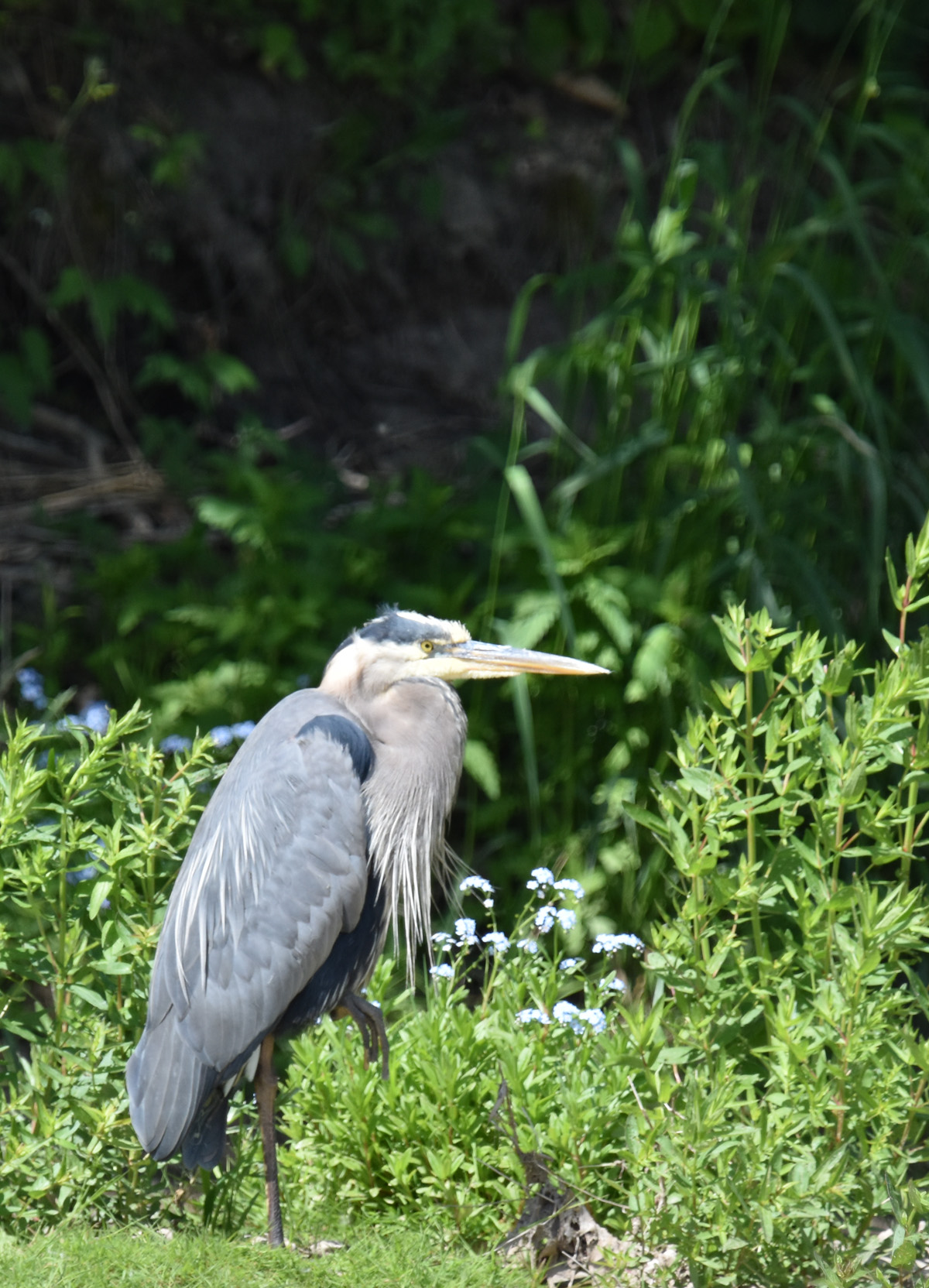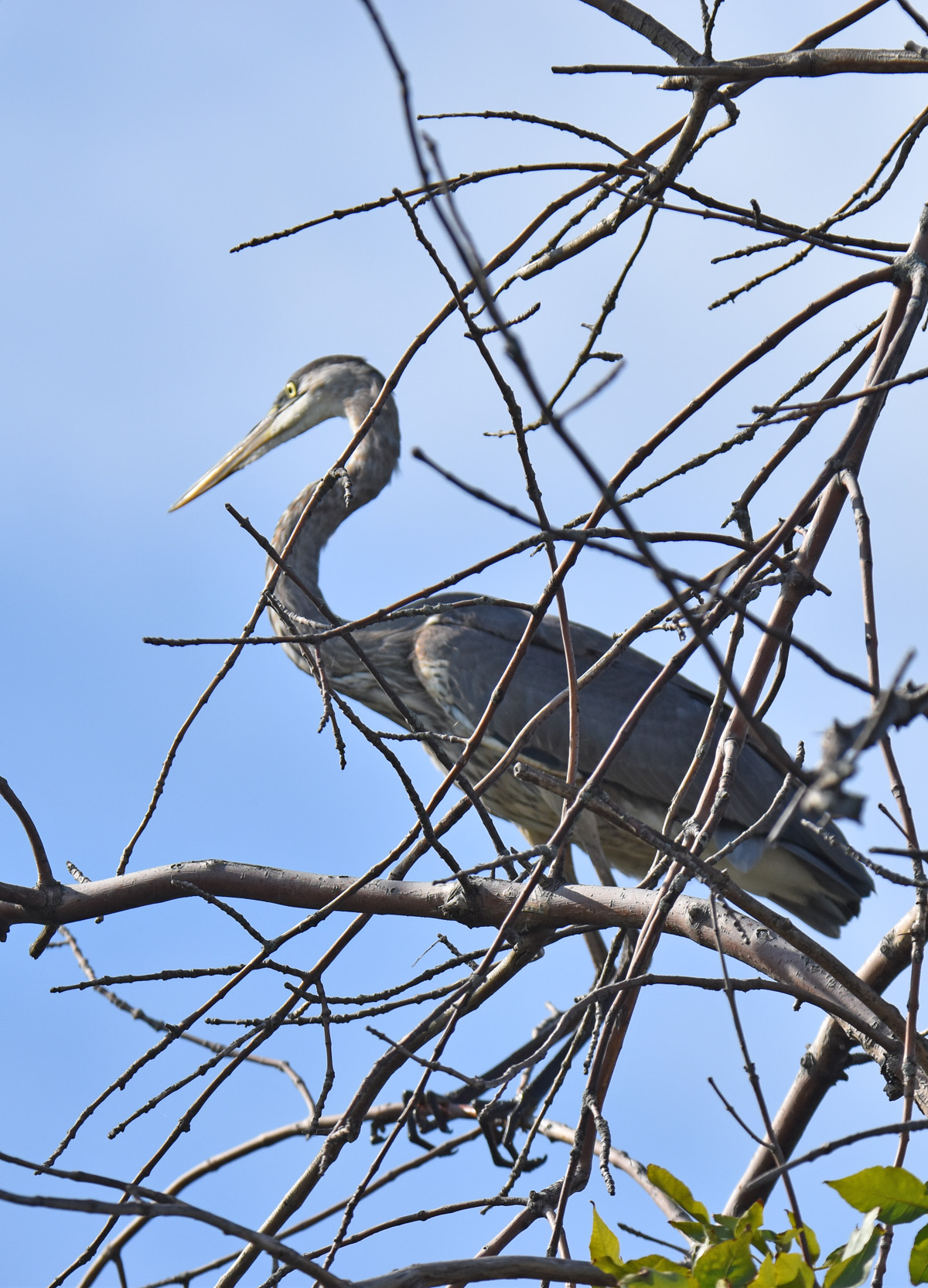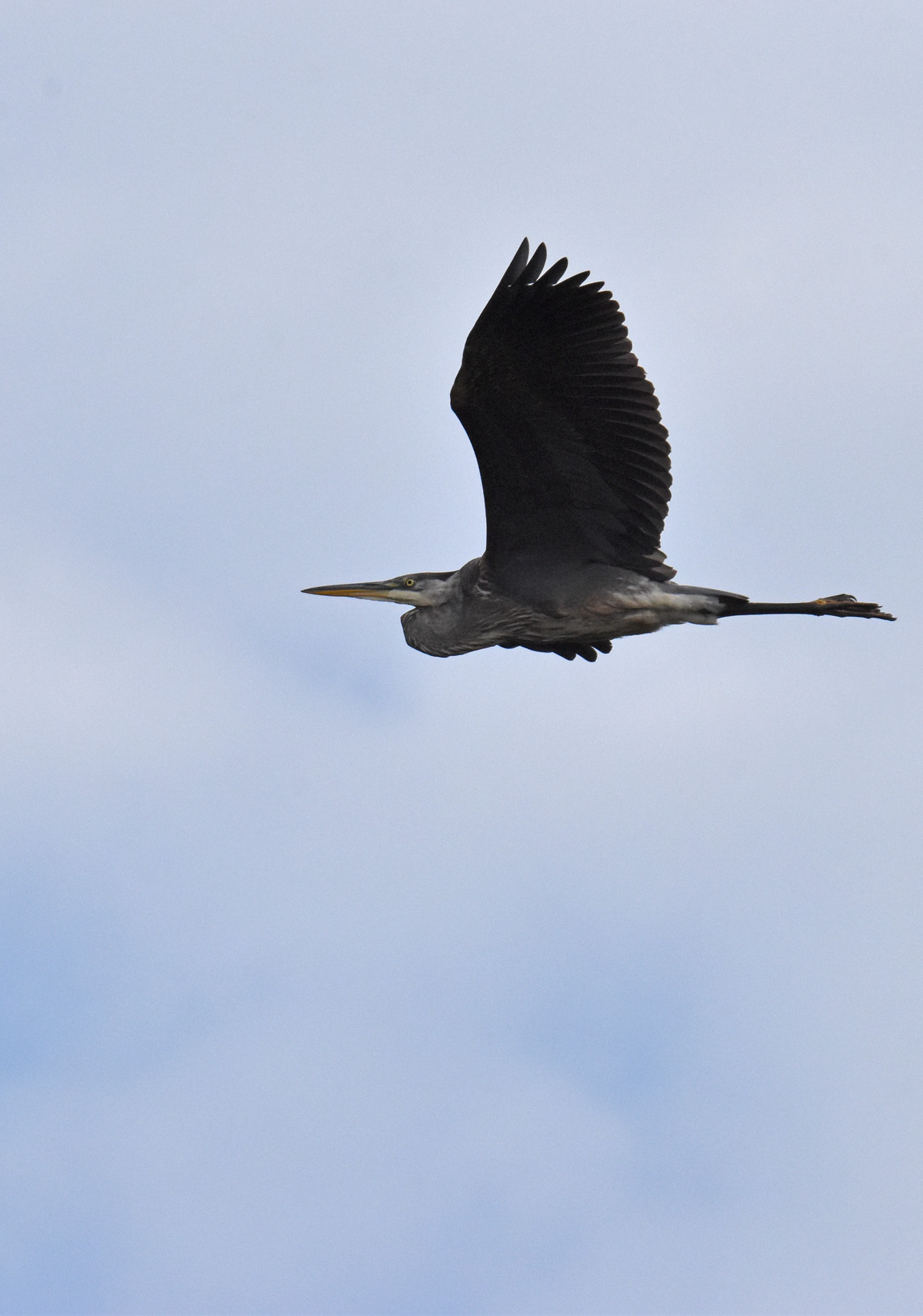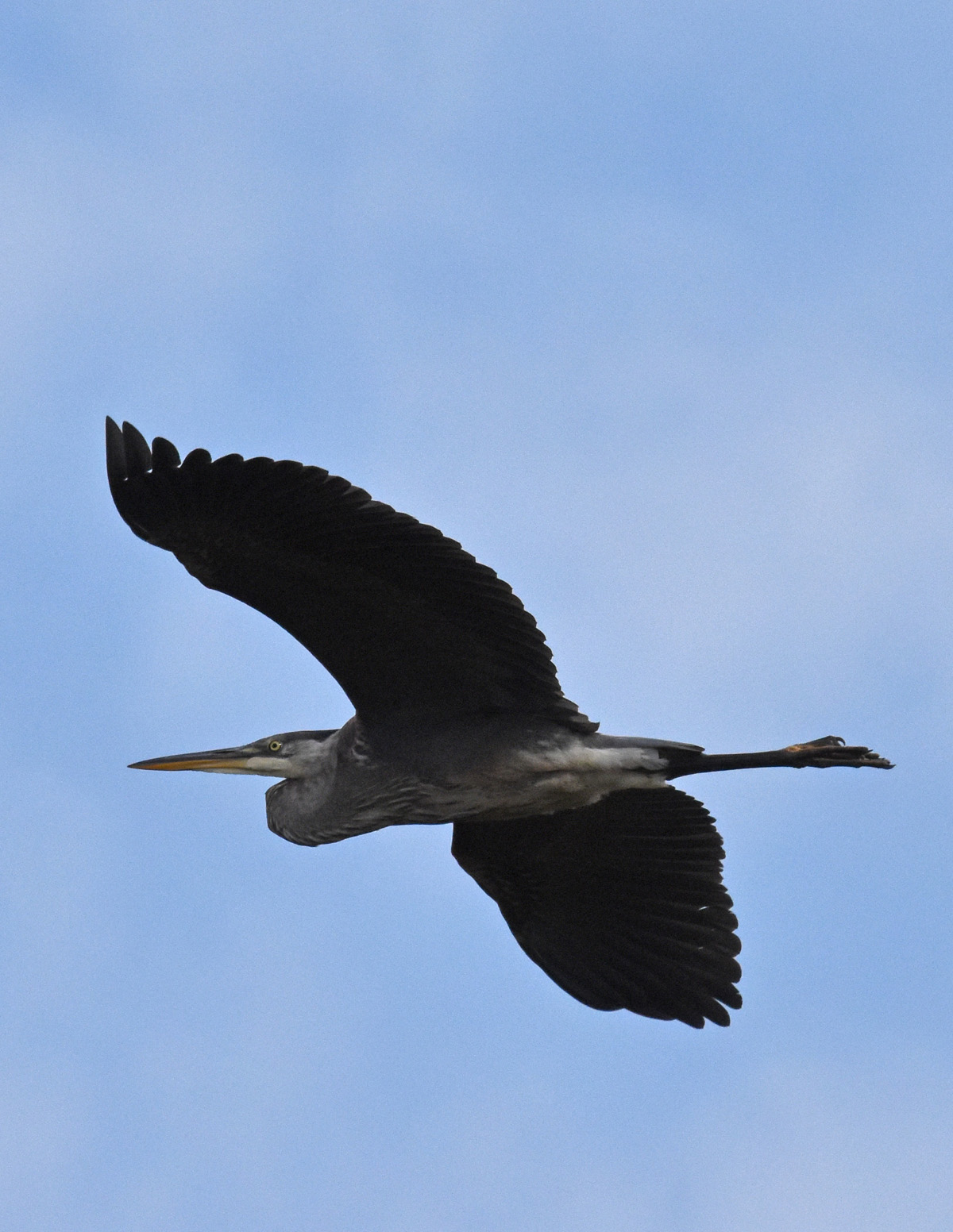While out watching warblers along my nearby dirt trail, I saw a large moving shadow and looked up, expecting to see the Turkey Vulture that had been lazily circling all afternoon. Instead, I saw a Great Blue Heron slowly stroking through the air. There is no stream or pond along the trail or even for quite a distance in any direction. In October, though, I knew these ancient-looking birds don’t feel constrained to stay in their usual spots so I wasn’t flabberghasted. I did start musing on whether the majority of Great Blue Herons migrate for the winter, and if so how far south.
Do Great Blue Herons Over-winter in Ontario?
Many winters not all of the water freezes in Mississauga. Parts of the Credit River and Lake Ontario usually stay free of ice. I’ve seen an occasional Great Blue Heron every month of the year.
Like the American Robins and American Goldfinches, though, the majority of the Great Blues, do not stay here over the winter. Most fly further south.
I checked the Cornell University AllAboutBirds website map to see how far south they go. As I suspected, the answer is “it depends.” Most of the Great Blues from Quebec, Ontario and the Prairies do fly south. Those in the Maritimes, though, tend to stay year round, as do the ones in the USA south of the Canadian border. The website says that some individual birds move much further south than they need to, travelling even down to the Caribbean–just like many other Canadian “snowbirds” ! Others just move south or towards the coast until they reach open water and good hunting and settle in for the season.

As you can tell from the Forget-me-nots, this is an older photo from June of a Great Blue Heron adult in “breeding plumage” with its draping feathers.
Do Great Blue Herons Need Water to Hunt?
Most of us think of Great Blues stalking through calm waters for fish, frogs, insects and turtles. That’s not surprising as they do eat mostly aquatic creatures including crayfish and ducklings.
Great Blue Herons, though, can and do also occasionally hunt on land.
One particularly memorable Great Blue Heron would wait near a neighbour’s bird feeder for a chipmunk to come for seeds. It would catch the hapless chipmunk, carry it down to the shore and hold it under water until it drowned before swallowing it.
To me that shows the intelligence of these rather primitive looking birds, especially since holding a frog or turtle underwater would not drown it. This bird had learned which animals breathe air.
While I doubt Great Blues can find a lot of prey on land in the winter, I suppose it might help one survive a temporary cold snap when all of the shoreline ices up.

I’m pretty sure the Great Blue in this older photo from late September is an immature based on the streaking on the neck.
Are Great Blue Herons Solitary Birds?
Whenever I saw a Great Blue in southern Ontario when I was growing up, it was hunting alone. Then, as a teenager, I went to BC and took the ferry from Vancouver to Vancouver Island. While waiting at Tsawwassen ferry dock, when the tide was fairly low, I saw dozens of Great Blue Herons all hunting through the shallows within stabbing range of each other. So much for my Solitary Sentinel theory!
If food is abundant, Great Blues seem willing to tolerate each other’s company. Where prey is harder to find, they seem to be more territorial.
Great Blues also nest together in colonies, often quite a distance from where they hunt. Here in Mississauga, I know one bird observer found the location of a colony just by watching the skies near sunset to see where the parents were flying towards.
Apparently, the males collect most of the large sticks for the nest, so I guess if I see a Great Blue carrying a stick I am most likely looking at a male!
See You In the Spring!
I expect to see Great Blue Herons for another month or two around here and then occasionally one in the winter. I’ll be happy to see the ones that do move a bit south when they come back here in the spring. Possibly I’ll see another one overhead while I’m out watching the warblers returning.
Related Reading
- Great Egrets Stalk the Swamp
- Least Bittern Isn’t In the Least Perturbed
- A Green Heron Punks the Banks of the Credit
- Great Blue Heron Soars 60 Hours Over the Sea
Join In
Do you have a “resident” Great Blue Heron nearby? Please share your sighting with a comment.


